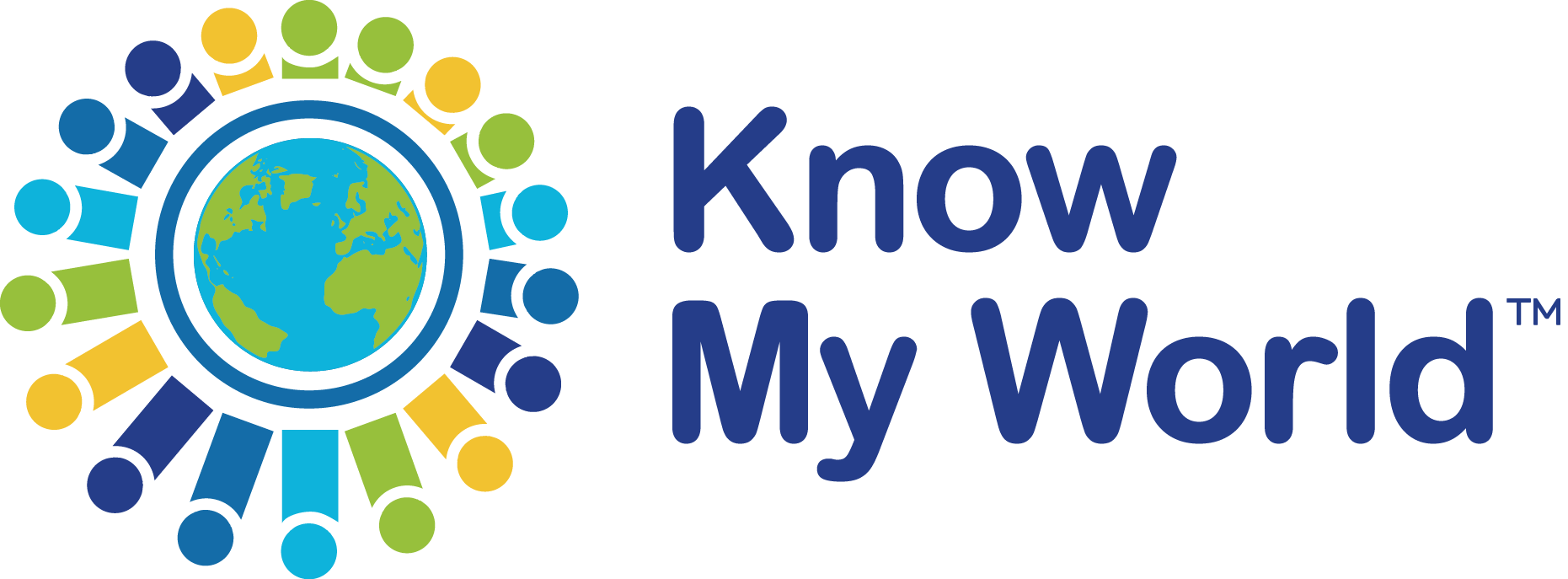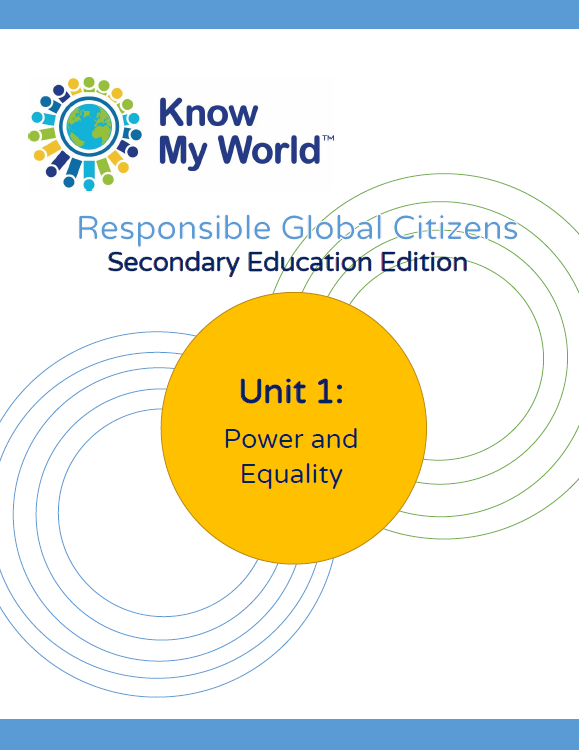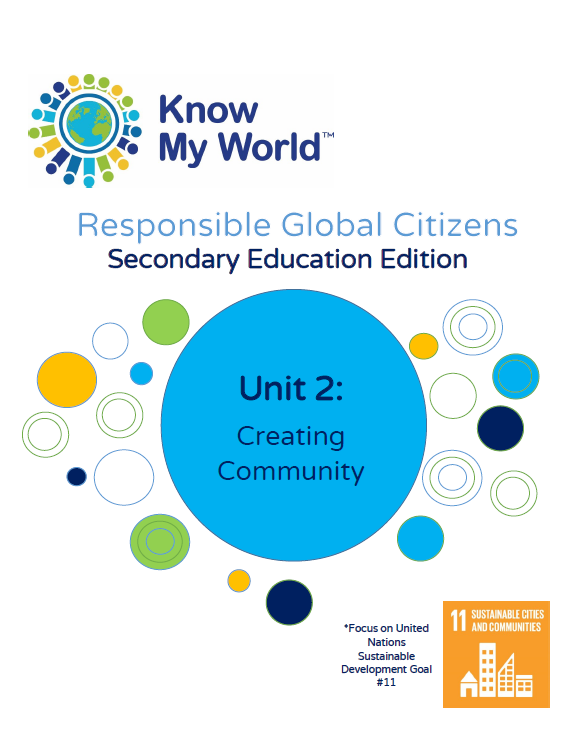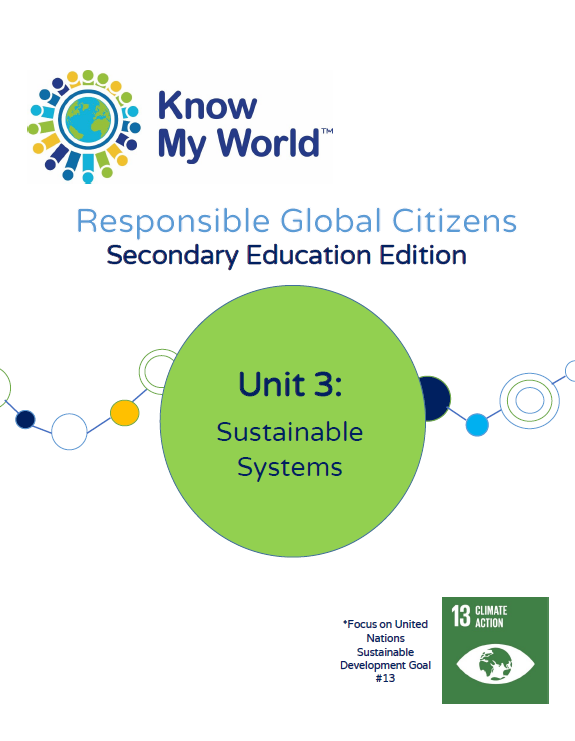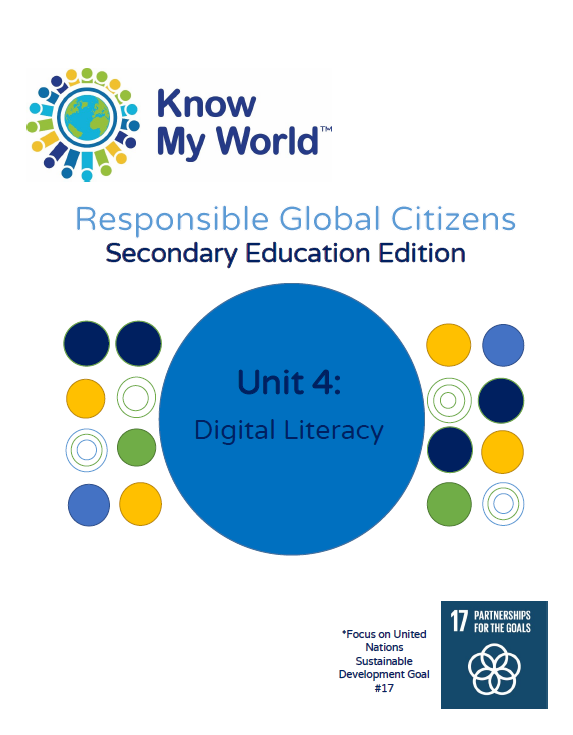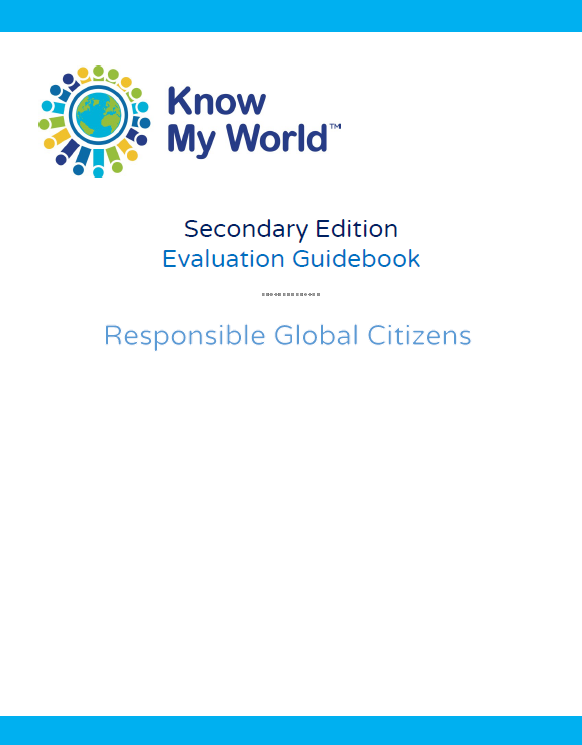Responsible Global Citizens: Secondary Edition
This 4-unit workbook series develops social, emotional, and cultural learning through interventions and activities dealing with Power and Equality, Sustainable Systems, Climate Change, and Digital Literacy. Each workbook approaches these themes through the lens of a United Nations Sustainable Development Goal, and acts as a catalyst for introducing and teaching these goals in the secondary classroom. The capstone book of the series, Know My World Evaluation Guidebook: Secondary Edition, includes an evaluation rubric and leads teachers through the evaluation and assessment process.
What’s inside each workbook?
- Overview and How to Use pages
- Vocabulary and Definitions of Key Concepts
- Instructional Strategies
- Communal Agreements
- Safe Space Activities
- Lesson and Activity Sequences
- Critical Questions for Reflection and Dialogue
- Printable Worksheets
- Rubrics for Evaluation
- References and Links to Resources
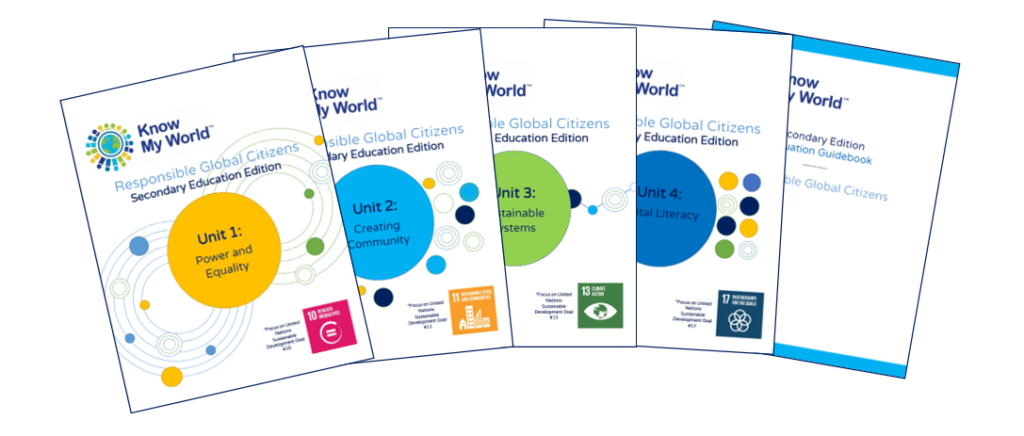
Bundle Discount!
Buy all workbooks in this series and the Evaluation Guidebook as a complete curriculum for your semester or school year and receive a 15% discount!
Cost with discount: $40.80 USD
Unit 1: Power and Equality
Many of the global issues we face in the world are rooted in social dynamics of power and equality. Understanding the behaviors and attitudes that impede social trust and collaboration, and investigating resulting issues, provides students with a foundation for taking-action. Unit 1: Power and Equality acts as an essential step in developing empathy, critical thinking, and social responsibility. Focusing on United Nations SDG #10: Reduce Inequalities, students will explore relationship dynamics through role-playing, case studies, and reflective dialogue in order to increase self and social awareness.
Unit 2: Creating Community
Understanding global issues requires knowledge and investigation. Actions that create solutions for global issues requires support, collaboration and community. In Unit 2: Creating Communities, students will explore the dynamics of sustainable and inclusive groups through mapping, role playing, mock conflicts, and interviews, in order to understand and participate more effectively in community building and intercultural dialogue. With a focus on United Nations SDG#11: Sustainable Cities and Communities, these activities will support student development in conflict resolution, creating action plans, and social activism.
Unit 3: Sustainable Systems
Climate change is an issue that cannot be ignored and it is staring at young people as they look to their future. In Unit 3: Sustainable Systems, activities will support students in reflecting on their own contribution and impact on the environment, as a way of relating to the larger concepts of climate action, including consumption, climate justice and zero waste. Through mapping exercises, data collection, and self-monitoring practices, students will demonstrate responsibility for their contributions to United Nations SDG #13: Climate Action while co-constructing solutions.
Unit 4: Digital Literacy
Having knowledge of the digital world and its benefits and detriments, along with the skills and attitudes that promote safe and effective communication online, are essential tools for the 21st Century classroom. In Unit 4: Digital Literacy, themes that incorporate skills for effective global citizenship, including inclusion, power, and local and global reach, are applied to the virtual community of learners. Looking through the lens of United Nations SDG#17: Partnership for the Goals, students learn how to leverage technology to participate in social justice, and demonstrate an effective communication with the world. Activities spotlight tracking behaviors, sourcing information, and investigating social media movements.
Evaluation Guidebook:
How can teachers gauge the efficacy of global citizenship education projects in the classroom? What kinds of practices support an assessment of these results? The Know my World Secondary Edition Evaluation Guidebook supports teachers in creating an assessment plan for their classroom regarding the development of social, emotional and cultural competence. Included is the Know My World rubric for the Secondary Edition series as well as tips and resources for creating a student portfolio, assessing individual and classroom progress and mapping outcomes for future planning.
